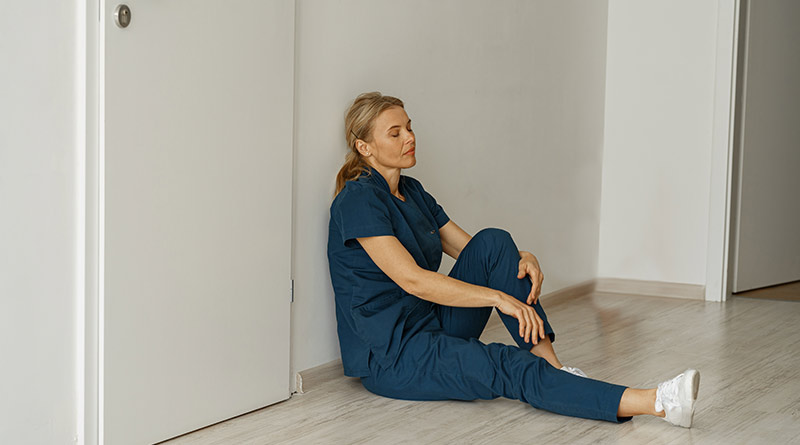Lack of Capacity and Preparedness Meant NHS Could Not Cope With Pandemic Says BMA
Giving evidence at the UK Covid 19 Public inquiry, the Chair of the BMA Professor Phil Banfield spoke of how the NHS was wholly unprepared to meet the demands of the pandemic, as the medical profession were “working constantly on the premise that our system may tip over at any moment”.
Professor Banfield said: “We knew that this was unprepared for. We had no idea what was coming our way. We were suddenly in a position where not only patients were going to die, but our colleagues and ourselves were in a position where we might die because we felt so unprepared.”
Speaking as part of the session on Module 1 of the UK Covid 19 Inquiry on resilience and preparedness, the BMA chair of council said that the Association had been warning for years of a lack of capacity within the healthcare system.
Professor Banfield said: “The number of beds has been falling, the number of staff has been falling, and we have been raising concerns prior to the pandemic, that we were not coping with the capacity that was needed to run the health service – therefore there would be no surge capacity if an epic pandemic happened.”
Detailing the disconnect between local public health teams and central government since the 2012 reforms resulting from the Health and Social Care Act, Professor Banfield warned that this had “eroded their ability to plan and scale up rapidly” during the pandemic.
He said: “In any sort of infection outbreak you need to be able to escalate things like testing for the disease, contact tracing; being able to isolate, quarantine and having expertise is incredibly important.
“They would have expected testing to become more widely available more quickly. At the point at which that didn’t happen, and testing was taken into the private sector and lighthouse labs, we started to get a disconnect of information because the IT systems were not compatible.”
As a representative of the medical professionals working throughout the pandemic, Professor Banfield spoke of the need for greater respiratory protection and said that fit testing for face masks was not taken into account prior to the pandemic. He warned that “one mask does not fit all” and that “it was predominately male faces that masks were built for”.
In relation to PPE for healthcare workers, Professor Banfield stated that under health and safety legislation there is a legal duty on employers to protect the employee from risks and there should be a legal duty to take a precautionary approach, that wasn’t taken in these circumstances and that occupational medicine has been allowed to “collapse in this country”. He agreed, in response to questioning, that if health and safety law and guidance had been properly enforced, there would have been greater attention to detail, it would be less likely that the risk assessment process would be overlooked and flaws in the system would not be allowed to go unchallenged.
In part of Professor Banfield’s witness statement provided to the Inquiry, and read out during the hearing, he said: “In future, consideration of inequalities must be central to pandemic preparations and must be close to the heart of what is required to be done in preparation for pandemic.”
Exploring the issue of how health inequalities may be better taken into consideration in the event of future pandemics, Professor Banfield said: “Reducing health inequalities and health in all policies is one of our highlights that we wish to see. The reality is that if you are in an environment where a portion of your population is sicker than another one, and it’s due to social determinants of your health. Unless you tackle those, a specific area and subset of your population will be more vulnerable to a pandemic, or another flu pandemic which will come. It is almost inevitable. And we are duty-bound to be prepared for that.”






